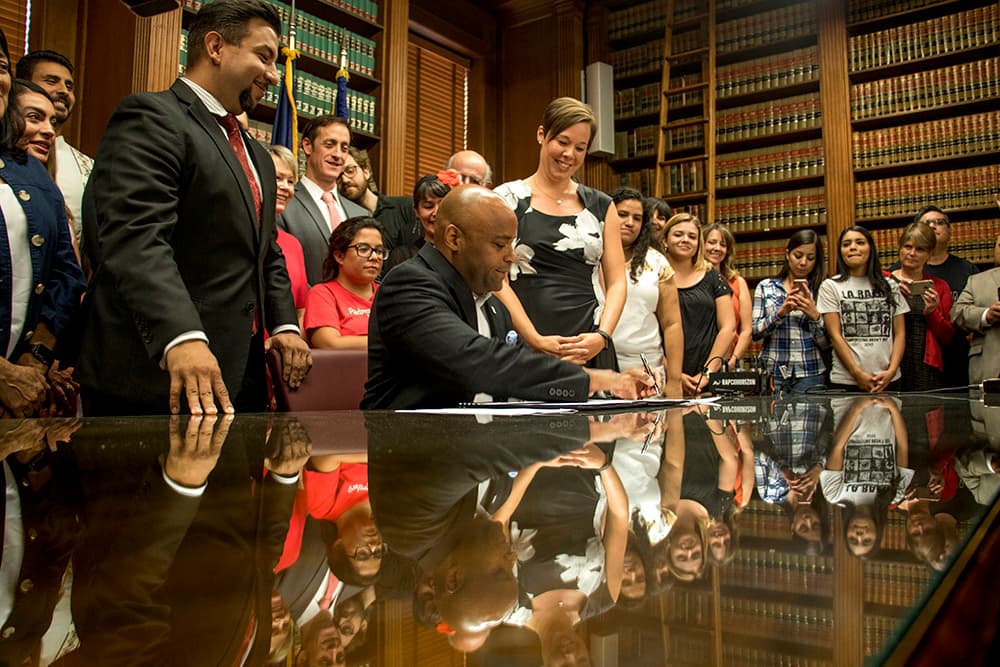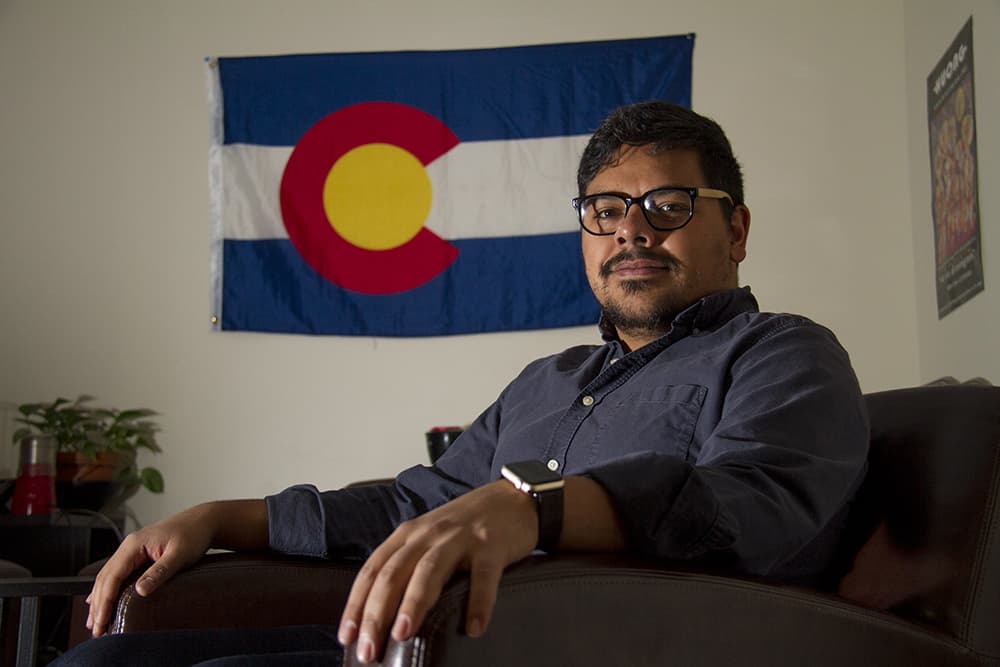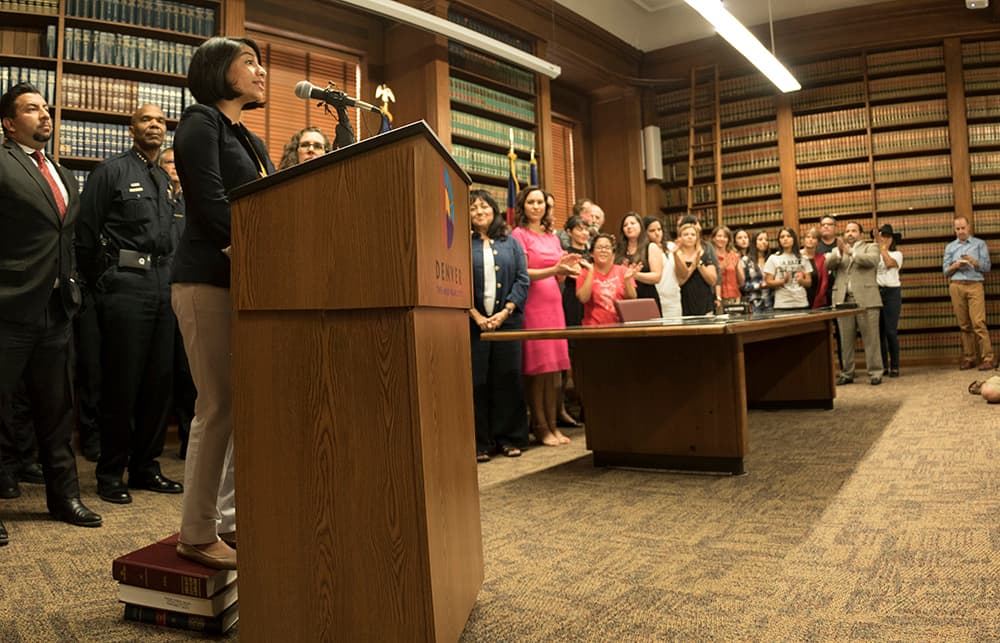
Mayor Michael Hancock took the podium before some 50 people in a book-lined room in Denver's City and County Building.
The papers beneath the mayor's pen were the result of long months of negotiations. The question of just how far Denver should go in protecting undocumented immigrants had subjected the city to blasts from conservative critics, and at times it had divided the supporters in the room.
But even at this moment of realization, a larger threat loomed -- one that nobody in city government can do much to stop.
President Donald Trump is widely reported to be on the verge of eliminating DACA, the Obama-era protections that gave work authorization and some degree of protection from deportation to a generation of 800,000 young, undocumented immigrants in the United States.
"Mr. President," the mayor said, suddenly turning his attention from his prepared remarks. "Leave our DACA children alone ... Do right. Don't submit to the politics of hate."
His audience roared, their applause synchronizing into a drumbeat.
Elsewhere on the Front Range, other elected leaders were preparing their own stands. The head of Denver Public Schools warned of "catastrophic" effects if DACA were to end. U.S. Rep. Mike Coffman, the Aurora Republican, declared the "time has come" to permanently protect people who were brought to the United States as children.
Earlier this week, Gov. John Hickenlooper's office reached out to immigrant advocates to ask what the governor could do, according to Juan Gallegos of the Colorado Immigrant Rights Coalition.
Their response to the governor was simple, Gallegos said.
Stand with us, publicly, they asked of him.
And so he will. Hickenlooper is set to speak alongside Gallegos and other elected officials at 10 a.m. on Friday at the Colorado State Capitol.
This show of support is emblematic of a decade of victories won by Colorado's alliance of immigration advocates. Since DACA was enacted, they've convinced state legislators to repeal the "Show Me Your Papers Law" and grant driver's licenses to unauthorized immigrants.
In the meantime, the state's 17,000 "DACA kids" have grown up. They've gone to college, taken jobs in corporate offices and in some cases become voices for their communities. Now, these 20-and-30 somethings are preparing for the fight of their lives -- even as they plan for the end of the lives they know.
"We’re not going to be employable. We won’t have work permits," said Gallegos, who serves as director of civic and engagement and legal services for the Colorado Immigrant Rights Coalition.
Gallegos, who renewed his DACA status two days ago, is girding himself for the reality that he could lose his dream job. Could he run an independent communications firm if he loses his work permit? Or will he have to get by on less?
"We already know that those jobs are probably going to be restaurants -- those jobs people work under the table right now. Pretty much going back to that life of being undocumented," he said.

Of course, it's still not clear what Trump will do.
McClatchy reported that he's expected to end the program while allowing current recipients to keep their work permits until they expire. Trump's office has confirmed nothing. If it happens, the end of DACA may be a result of an impending lawsuit from the attorneys general of 10 states opposed to DACA.
The program is based on an executive order, meaning Trump can kill it all but instantly. Even then, though, the fight won't be over. Gallegos and his colleagues are gearing up their fight for a law that might finally give them permanent legal status.
"We’ve been fighting for a long time around the DREAM Act. We’re talking to our members of Congress. All of them," he said. "The Republicans in Congress are the ones who have to move to get something done. The people who have the ears of leadership."
So, while DACA's fate will be decided in Washington, D.C. -- or Mar-a-Lago -- the broader fight will continue in Colorado. Nationwide, DACA advocates might have the support of 64 percent of the population, according to one recent NBC News poll.
"Our powers are limited with regard to DACA," Hancock acknowledged. But, he added, "we can always use the bully pulpit."













